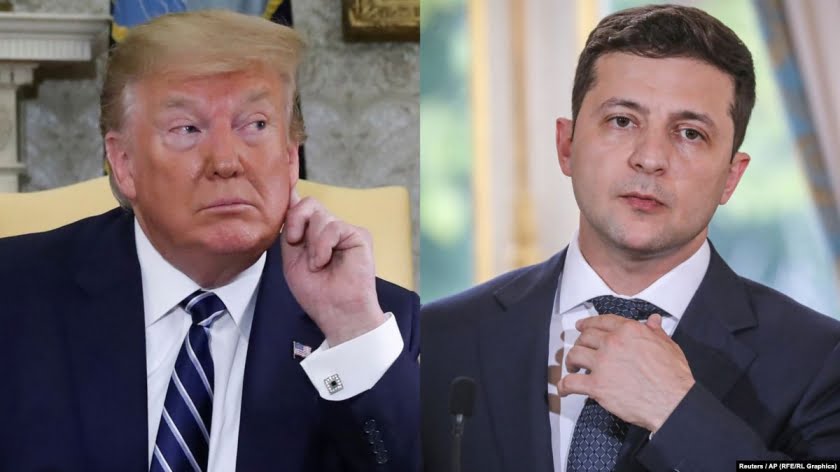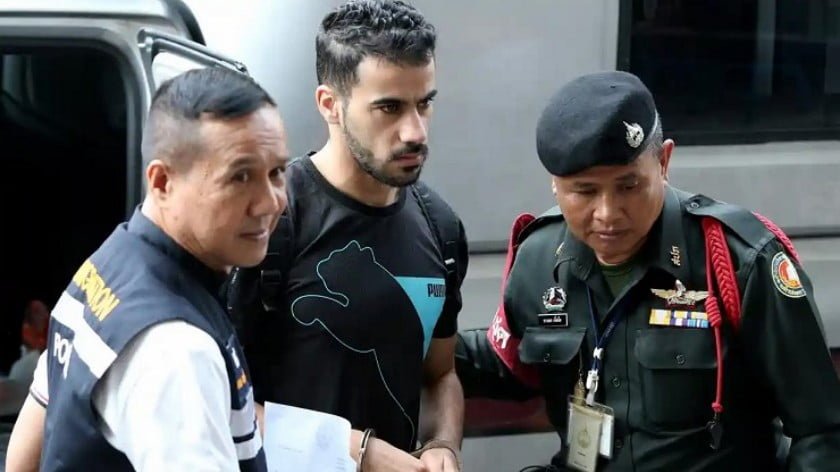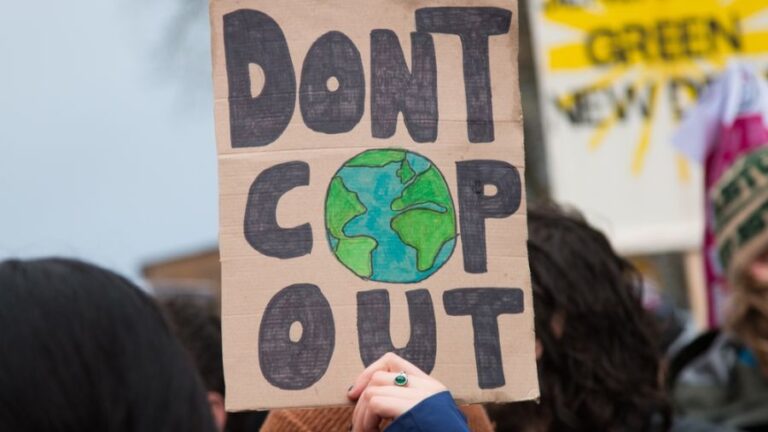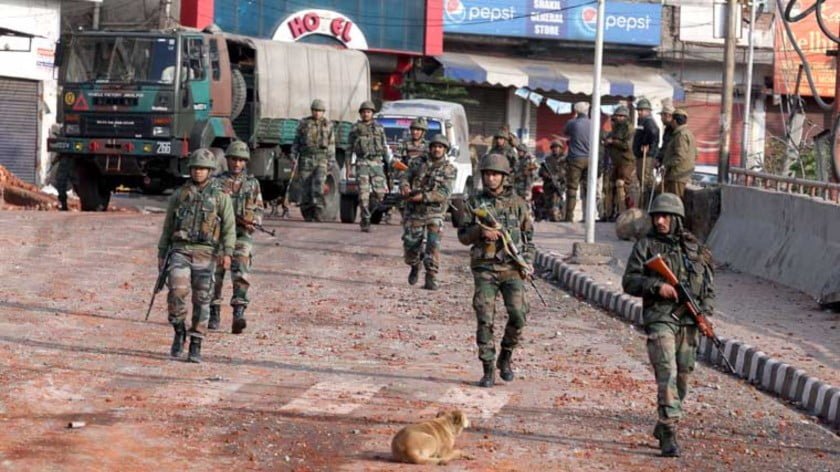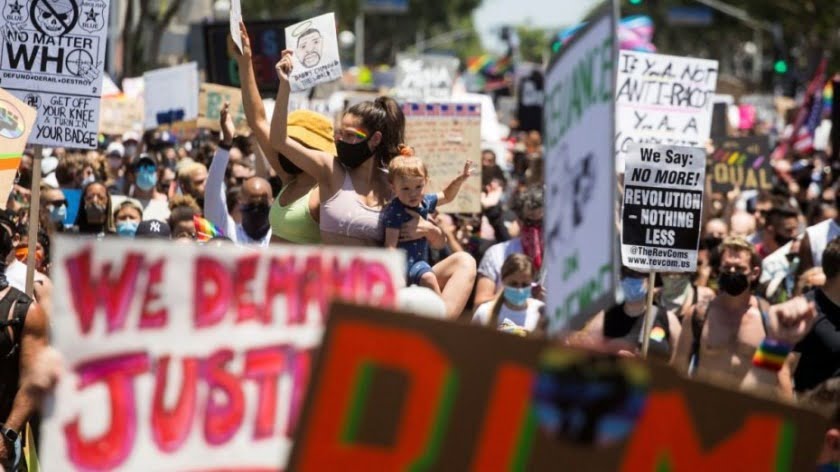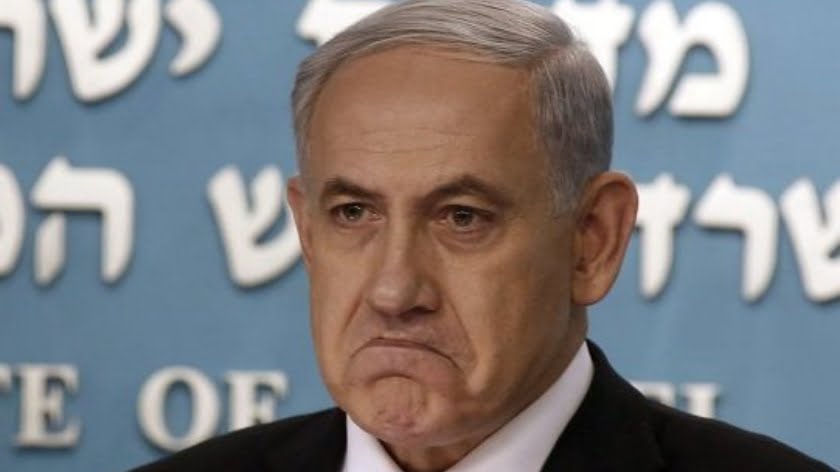Trump-Zelensky-Ukraine: What Is Really Going on Here?
I have over several days reflected on the official White House record of the Trump-Zelensky conversation on Ukraine-US relations on 25 July 2019, a conversation held soon after Zelensky’s confirmed election victory, and declassified by Trump’s presidential order of 24 September 2019.
I have also been reflecting on the more recent Democratic Party decision to explore possibilities for impeachment of Trump, a decision fortified by the so-called ‘CIA whistleblower’ and his/her rather unimpressive revelations.
Here is my hypothesis of what may be going on here. As always, it is a complex mixture of domestic US politics, and Trump’s and Zelensky’s foreign policy goals. And a footnote follows on Downer.
Let’s start with the foreign policy goals. Both Trump and Zelensky are operating in highly constrained and threatening foreign policy environments at home. At the time of their phone call, Trump still had the warmonger Bolton to deal with inside the house: and even now he is still under the watchful scrutiny of the Russophobe imperial state figure of his Secretary of State Pompeo, closely though undeclaredly linked to the Washington imperial party on Ukraine-Russia as on other East-West issues.
Zelensky is similarly constrained and threatened in Kiev by the anti-Russian fanaticism that has been indoctrinated in large sections of the Ukrainian population by decades of nationalist, often neo-Nazi, Russophobe propaganda.
It is a tribute to the instinctive good sense of the Ukrainian electorate that Zelensky was able to defeat in the polls the discredited NATO stooge Poroshenko so comprehensively and decisively. The maturity of this vote gives me renewed hope for Ukraine. But there is a long way to go still towards political normalisation and economic recovery there.
Zelensky is smart enough to see that his country must achieve a normalisation of relations with Russia, but knows that he cannot yet say this openly. Putin wants this also, very much. But both men know it will take a very long time after the accumulated bitter grievances on both sides over recent decades, and especially since the lethal and destructive civil war on Eastern Ukraine that was begun by Poroshenko in April 2014 – no doubt on American advice.
This war has had terrible human consequences: loss of life, wounded and disabled casualties, destroyed communities, massive forced refugee outflows. Neither side can get over this easily or quickly.
The reciprocal prisoner release on 7 September was an essential symbolic action. Putin’s release of the navy crews who took part in the provocative and foolish Ukrainian raid on the Kerch Strait bridge a year ago was a key part of building Ukrainian confidence and trust in Zelensky’s leadership.
Russophobes in the West are in consternation at new green shoots of possible hope for progress towards Kiev-Moscow normalisation under the Normandy diplomacy format.
They are desperate to derail this hope, by proposing impossible conditions for normalisation: in particular that any self-determination elections for Donbass (while remaining within sovereign Ukraine) could only be held under an ‘internationally supervised’ election and with ‘international peacekeepers’ in charge.
See for example this recent piece by a European analyst, Gustav Gressel. East Ukrainians rightly see such a formula as a sure recipe for US infiltration and black regime change operations in Donbass. So it will not happen.
As I interpret the Trump-Zelensky conversation, both leaders were cautiously but in a friendly way exploring the boundaries of what might be possible for each of them as presidents to revisit the troubled history of the past few years. I see nothing dishonourable or intimidating in this conversation. Trump critics are reading into it only what they want to read.
Here I turn to the US domestic politics aspect.
Trump is still bitterly opposed by the US imperial state represented by people like Biden, Clinton, Bolton and McFaul (and increasingly, I suspect, by Obama), but also the FBI-CIA national security dissident faction represented by people like Brennan, Comey and Clapper. These people have learned nothing from the embarrassing failure of the Mueller investigation to prove the false Russiagate allegations.
They are keen still to bring Trump down by whatever possible means.
They see the threat to the credibility of their cause if Trump and Zelensky should together succeed in finding evidence of Ukrainian underpinnings of the 2016-17 Russiagate conspiracy against Trump. They are desperate to have a last bash at Trump before he might finally expose any such improprieties, through evidence from Ukraine (or, for that matter, Australia – see below).
They were powerful enough in the Democratic Party to finally overcome the experienced Nancy Pelosi’s prudent and well-founded resistance to their plans. She knows that this impeachment process could destroy any Democratic Party hopes for power next year.
But these fanatics are ready to go for broke, in their rage and despair against Trump. The ‘CIA whistleblower’, whoever he or she may be, is their last desperate throw.
The pathetic, compromised figure of Joe Biden, with his damning Ukrainian nationalist connections, is their unlikely standard-bearer. Elizabeth Warren is a possible backstop.
For these folk, either Sanders or Gabbard would be a disaster as a candidate – because neither shares the imperial agenda, and both are morally strong enough to resist it.
Nancy Pelosi and Tulsi Gabbard know the realities. I suspect Bernie Sanders does too, but is awaiting his moment to speak out on this.
The US liberal print media led by the New York Times and Washington Post, and more sympathetic networks like MSNBC and CNN, are trying to keep the impeachment fire alive. Other networks like FoxNews are standing back from it more sceptically.
I predict – analytically – that Trump will survive this latest impeachment wave and come out even stronger for the 2020 election as a result. His indignant base will be energised to vote in strategically important numbers sufficient to regain for him the US presidency for four more years.
This is good news for prospects for peace between Ukraine and Russia, however problematical it may be in other areas of the world diplomatic arena (and I am no supporter of Trump).
But I do not expect early miracles in Ukraine, rather a slow normalisation and contact-building process between these two closely related nations.
* * *
And a late footnote on Trump, Morrison and Downer: with exquisite timing, Trump has now put the acid on Morrison to give his Attorney-General Barr access to Australian intelligence files on Downer’s alleged attempt to collect intelligence from, and possibly incriminate, George Papadopoulos in their alleged wine rooms encounter in London, while Downer was still Australian High Commissioner.
It would seem, according to the allegations, that Downer was trying to collect intelligence to support the Russiagate allegations against Trump.
Morrison is now between a rock and a hard place. He cannot reject Trump’s request outright. (As Australian Labor figures are thoughtlessly urging him to do). But nor can he pursue Trump’s request enthusiastically enough to expose any alleged anti-Trump secret activities of Australian intelligence agencies, who were under pressure at the time from visiting figures in the US FBI and intelligence world – Comey, Clapper and Brennan – to help them build the Russiagate case against Trump in the first year of his presidency.
A Five-Eyes operational dilemma indeed, that will test Morrison’s loyalties.
By Tony Kevin
Source: OffGuardian

